Post-Bac educational counselling: choose your training better with the Educational Pathway Explorer
In the framework of an educational counselling PIA (Future Investment Programme [Programme d’Investissement d’Avenir] call for projects, launched by the Ministry of Higher National Education and Research) and the Caisse des dépôts (French Public Financial Institution), Kosmos was selected for its “explorateur de parcours (ExP)” (Educational Pathway Explorer) project. Developed by the Kosmos solutioning team in partnership with 6 Universities and the Pixis company, its goal is to render Higher Education Establishment course offerings more legible and to allow high-school students to explore the different educational counselling possibilities.
The high-school student can then project themselves in their future profession and their prospects for employment. Several development steps are planned before making it available to high schools, universities and higher education schools, with a planned introduction date of end of 2021. Discover the initial progress of the project: the presentation of the educational offering on the Educational Pathway Explorer.

High-school students and educational counselling experts involved in the design
Different stakeholders have been involved as of the conception of the project, to respond to the real identified needs. The Kosmos solutioning team is developing the Educational Pathway Explorer in partnership with CY Cergy Paris University, the University of Clermont Auvergne, the Côte d’Azur University, the University of Nantes, the University of Toulouse III-Paul Sabatier, the University of Tours and the Pixis company. High-school students from the Nantes Regional Education Authority are also participating in the development of the platform. Partnerships with high schools in other Regional Education Authorities are also envisaged for the next development steps of the solution.
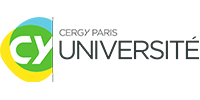
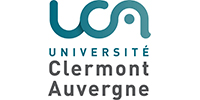
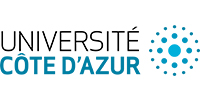
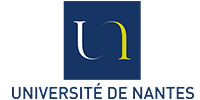
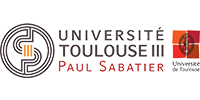
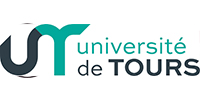
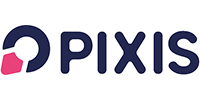
With this unique collaboration, the project benefits from diverse expertise and professional skills. Several user workshops bringing together research/teaching educational counselling project officers, educational counselling and professional integration officers, communication directors and officers, workplace psychologists, high-school students, are held, mostly by videoconference, in order to work on the design of the solution.
For Amandine Decarsin, Communication Officer in the Education department at the University of Tours:
One of the strengths of the Educational Pathway Explorer is how, during its construction, it has been able to integrate both professional experts from the higher education establishments and high-school student users. This co-construction guarantees a good match between the needs expressed and the solutions provided.
For Olivier Chauvet, Professor in the “Materials Department” at Polytech'Nantes” - Physique des Matériaux et Nanostructures research group / Institut des Matériaux Jean Rouxel:
The discussions held during the design of the Educational Pathway Explorer were professional and well-focused. The Kosmos solutioning team has a good mastery of the subject of “course offerings”. The presentation of the course offerings designed for high-school students has been user friendly and well-designed.
In addition, Pierrick Roberge, Executive Director of CY SUP:
The project falls well into the strategy to reinforce the School-Higher Education continuum supported jointly by CY SUP, the undergraduate school of CY Cergy Paris University, and the Versailles Regional educational Authority. Perfectly complementary with the LyLi project, the High-School-Licence network”, also a winner of the Teaching Innovation Territory PIA, the ExP project will allow the possible educational pathways to be spelled out within the university and therefore all the regional talent to be accompanied to higher education.
The choice of a fun interface
After several months of work, Kosmos and its partners are ready to present you with the preview of the course offering presentation page that will then be incorporated into the Educational Pathway Explorer. The platform, intended to be fun, lets high-school students easily search for a course according to a field, a discipline and/or a location that interests them. The search can also be carried out depending on the skills and profession targeted. It offers the possibility of having a global view of the course offering in galaxy or list mode.
The display of course offerings proposed by the Educational Pathway Explorer highlights how the high-school student is able to match search criteria and positioning. Until now, the criteria were too dispersed and it was impossible to match, for example, the choice of specialties, course expectations, professions, etc. It is a major breakthrough as high-school students and families have very high expectations, particularly in terms of access to a simple and comprehensive tool for educational counselling.
Ali Douai, Associate Professor at Côte d’Azur University

By searching by profession, the platform will offer results based on a repository of professions that will then be enriched by resources and content developed by Pixis, a company specialized in digital solutions for schooling and professional educational counselling.
We found the way of presenting the course offerings from several points of entry interesting. Hence, new students could open up the choice of courses about which they would perhaps not have thought, just searching by prospects or by specialization. Our educational/insertion counsellors could help them in their choice of sector using related searches based on skills.
Gilles Robin, Computer Science developer for the NCU-ANR "MonPassPro" project at the University of Clermont Auvergne
The next steps in the design of the Educational Pathway Explorer
The Kosmos solutioning team is currently in the modelling phase of the high-school student curriculum construction. The next step will be the development of the administration interface for constructing the course curriculum. As the application is being designed in agile mode, the partners and high-school students will be consulted as the project evolves to design a professional solution to match their needs as closely as possible.
Other developments are envisaged for optimizing the application, such as the localization of the course, a chatbot for directly answering high-school student questions, a criteria-comparison tool for courses chosen, to help the future student to choose the best course option.
Meet with us again in the spring to discover the modelling of an educational pathway chosen by a high-school student!
Career Path Explorer : Winner of PIA Orientation
Discover the origins of the "Pathfinder" project!
Read article
Kosmos next
The school of tomorrow is built every day
Discover